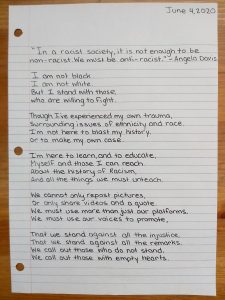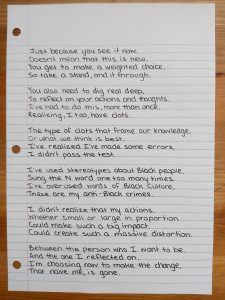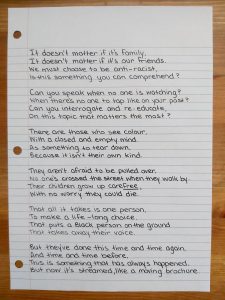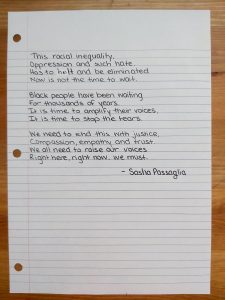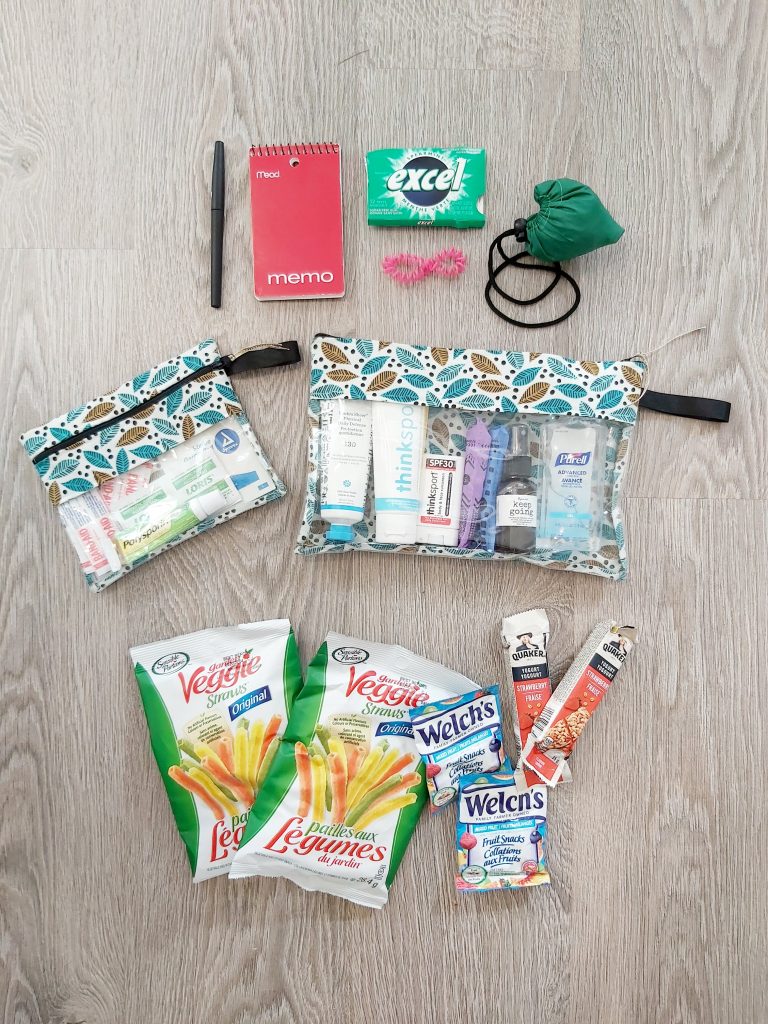
My bag probably looks quite different than most, but I think that’s the beauty of this task. It allows us to get a glimpse into the deeper etchings of each other’s daily lives. For some, it might be a bag you use every day and for others, it could be a specific bag for a specific task or experience. I have three bags that I use on a rotating basis; My teacher bag, my hiking bag, and what I like to deem, “My Mom bag.”
Usually, at this point in time, I would be carrying my Teacher bag around with me which would have many different items then this bag shows. However, since the world basically turned upside-down, this full-time teacher is now a full-time teacher working from home with two boys, ages 3 & 4. This means that my Mom bag has moved into position #1 and as you can see, is packed with essentials I need on a day to day basis for adventures with two boys.
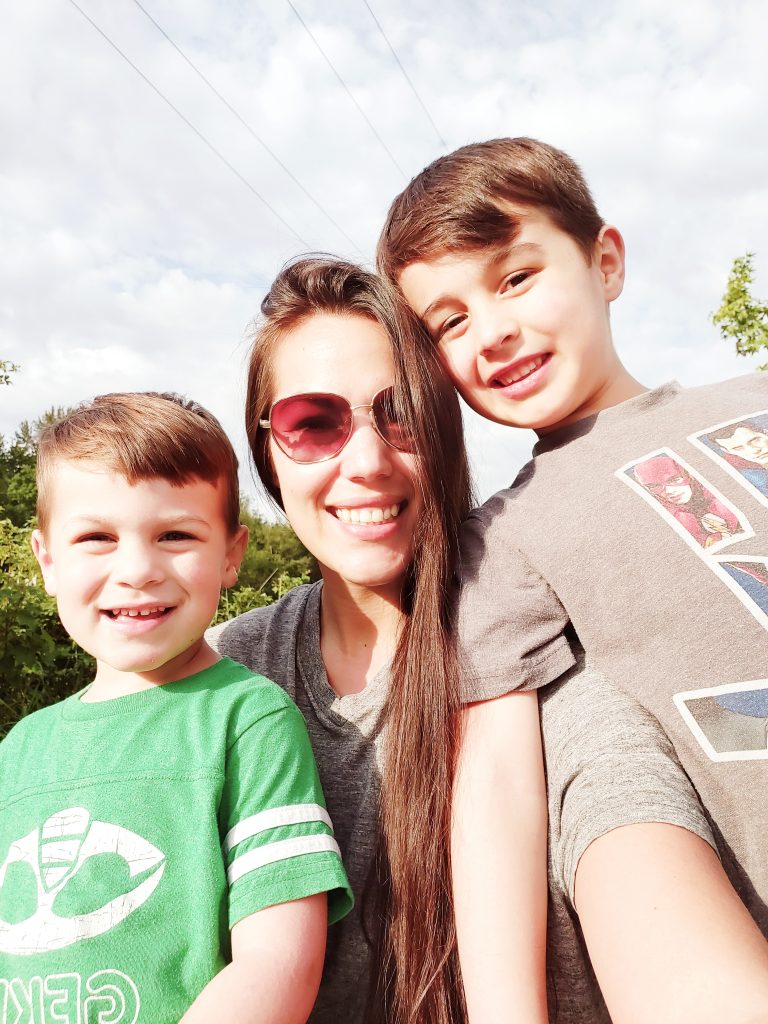
Well, first things first. There is no picture of my phone or wallet in my bag though I have these two items with me whenever I leave the house. The phone is taking the picture, so there’s that, and then my wallet, well, they’ve hidden it. I’m sure I’ll find it later…
You might notice that I actually have 2 bags within my Mom bag. I like to keep things organized and don’t enjoy leaks in my bag AT ALL! I used to always find that any type of liquid or cream would somehow open up and get all over the other items in my bag. So I purchased a few dry bags to keep my bigger bag nice and dry.
So what is in my bag? Here’s a breakdown:
- Black pen
- Red memo pad
- Excel mint gum
- Pink hair elastic
- Green reusable bag
- Veggie sticks x2
- Fruit gummies x2
- Granola bars x2
- Small Dry Bag
- Large Dry Bag
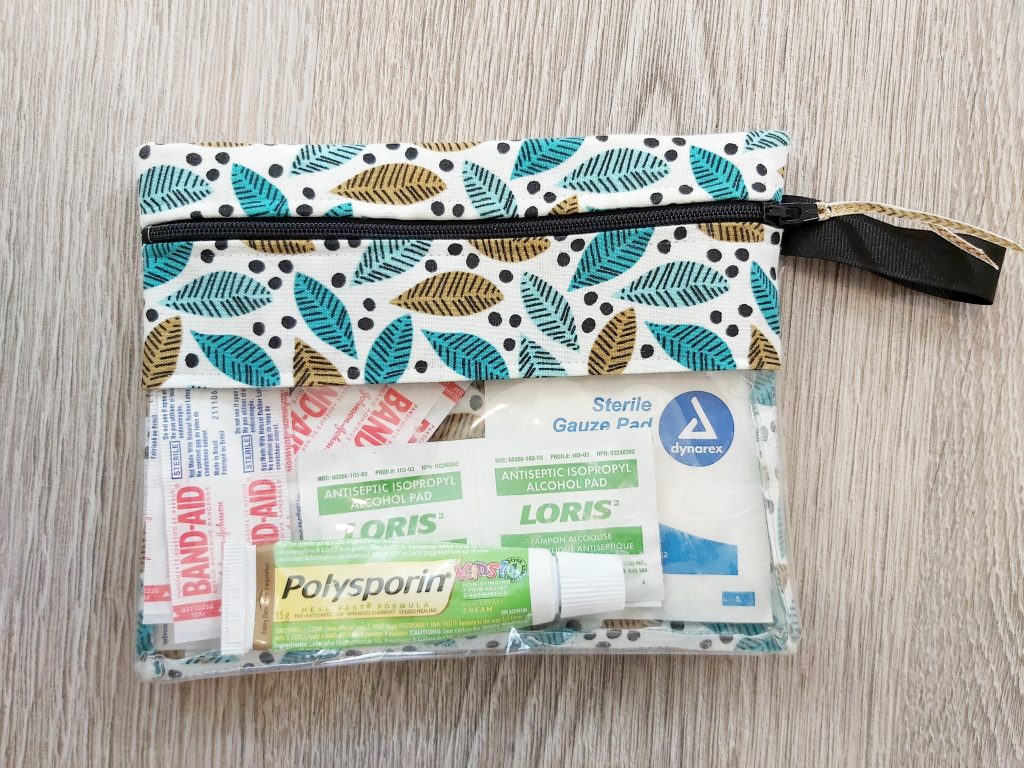
In my small dry bag, I have:
- Assorted superhero band-aids
- Kids polysporin
- Alcohol cleansing wipes
- Sterile gauze pads
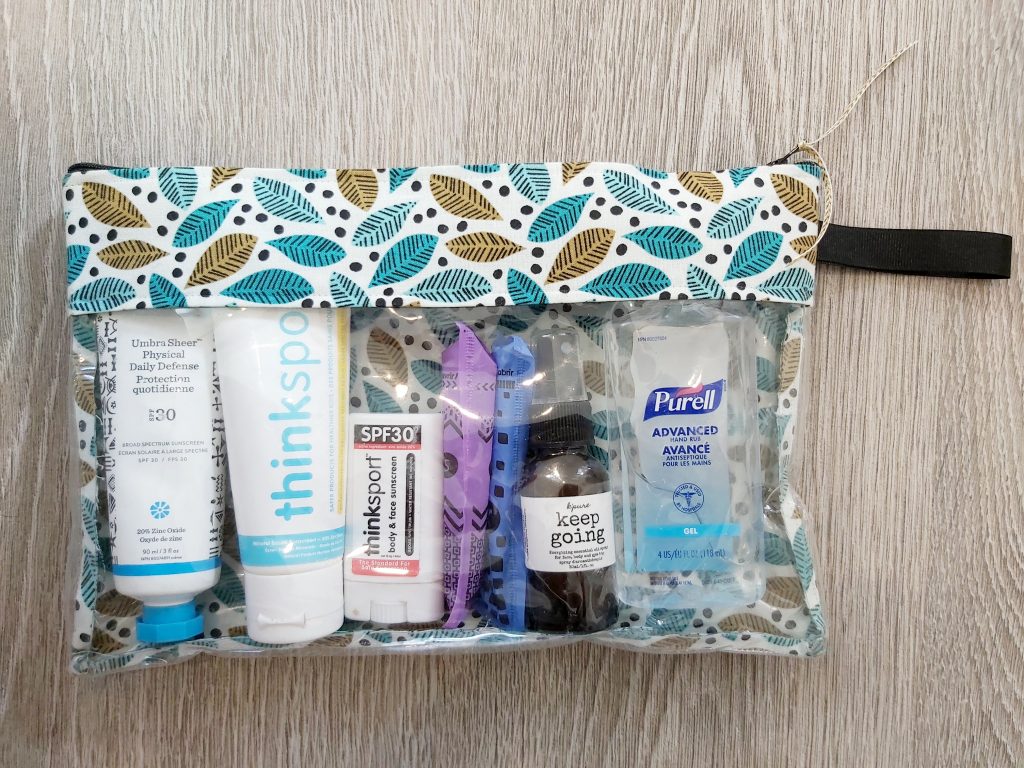
In my large dry bag, I have:
- Kids sunscreen
- Kids face sunscreen
- Mom’s face sunscreen
- Tampons x2
- K’Pure Naturals Keep Going spray
- Hand sanitizer
So why these items? Well, with two young boys running around, it’s crucial that I have some first aid supplies on hand for all the cuts, scrapes & owies that WILL occur. This is not something that is a “just in case” scenario. This is an “all the time,” “100% guaranteed” situation. On top of that, it’s imperative that I have snacks available at the bequest of my two boys. All the snacks, all the time. I’m basically a walking pantry. So veggie sticks, gummies, and granola bars get replenished daily in my bag.
On top of being a nurse and a cook for my kids, I’m also a doctor and prescribe sunscreen for them even if it’s cloudy. We’re into the spring/summer weather now so I always carry sunscreen both for body and face. I also carry my own sunscreen around because I can’t help them if I can’t even help myself!
Now under normal circumstances, you might be thinking, “Oh great. She keeps a reusable bag around so she doesn’t use plastic when shopping.” Nope. Not the case. I keep that bag around for my kids’ clothes because they’re bound to get dirty. Boys are dirty. It’s a fact. Now you might be wondering why there isn’t a change of clothes in my bag for them. Well, that’s because I refuse to do more laundry than I need to. I don’t need my car seats getting dirty too!
The other items I have in there are pretty simple. A pen and note pad in case I need to write something down. I know that I have a note app on my phone, but I like the pen to paper feeling. Also, the hair elastic. Self-explanatory for us ladies with long hair. I have to have one available at all times! Lastly, the mint gum which we always seem to have laying around. My mother-in-law buys the bulk gum from Costco so I throw a pack in every drawer, glove compartment, bag, etc that we own.
“The single theme that runs through all these words and their meanings is that of creation.” – Scholes
When I think about how my items might be considered “texts,” I think about how the word Text is defined in early Greek Beginnings. Scholes finds that common theme of creation, and I couldn’t help but relate to text in that nature as I’ve experience creation twice now as it is defined by these Greek origins. I think that my items divulge the obvious about me; I am a Mother. I enjoy adventure and being outside and am not afraid of a little dirt – because I am prepared and organized. I choose items that are healthy and safe for my children, free of chemicals and locally purchased when I can help it.
Thinking about the text technologies in my bag I think that the memo and pen really say something about how I communicate with myself. I’ve always been someone who likes to write things down so I take notes, doodle, and even use fancy pens. I like bold words that stand out to me and I’m a very visual and tactile person. I look at the sunscreen in my bag and I see the would THINK – thus I think about what I’m putting onto my children’s skin. I see the body spray that says KEEP GOING and I begin to feel a need for more energy. These texts, these words, speak to me in that sense.
When I look at the image that I outwardly project I think about the photos that I post on my social media accounts. I try to be as real as I can, posting videos about my daily life. Some include just me, but most include my adventures with my kids. You would know within seconds that I’m a mother and I think the narrative of the contents of my bag compared to the narrative of my image is pretty spot on.
However, 15 or 25 years ago this bag would not look anything like it does today. Chances are it would be my University Soccer duffle with stinky socks, cleats, and shinguards along with a change of clothes, shower items, A535, hockey tape for my ankles and Gatorade. The only thing that remains the same though would be my notebook, except this one would have reflections of each game and practice. That’s so interesting for me because I just remembered that as I’m typing this right now. I wonder what happened to that notebook? I think it’s time I start looking…
